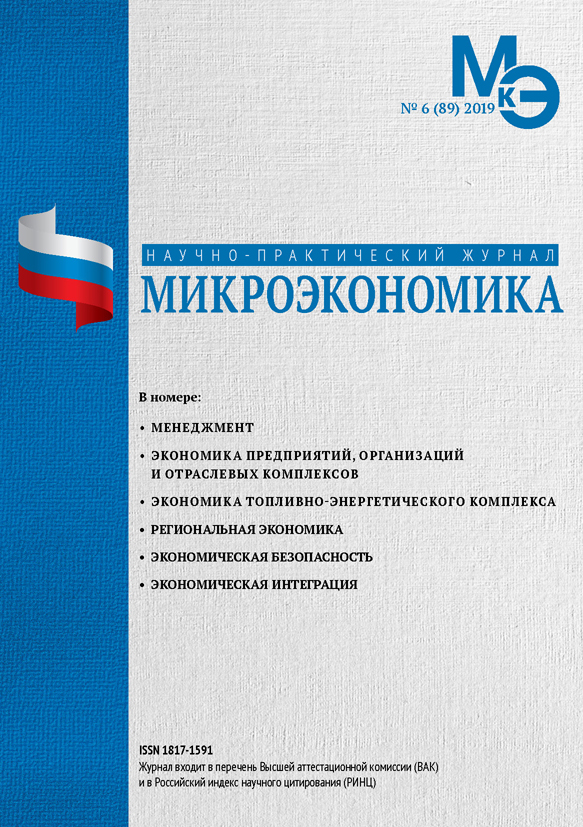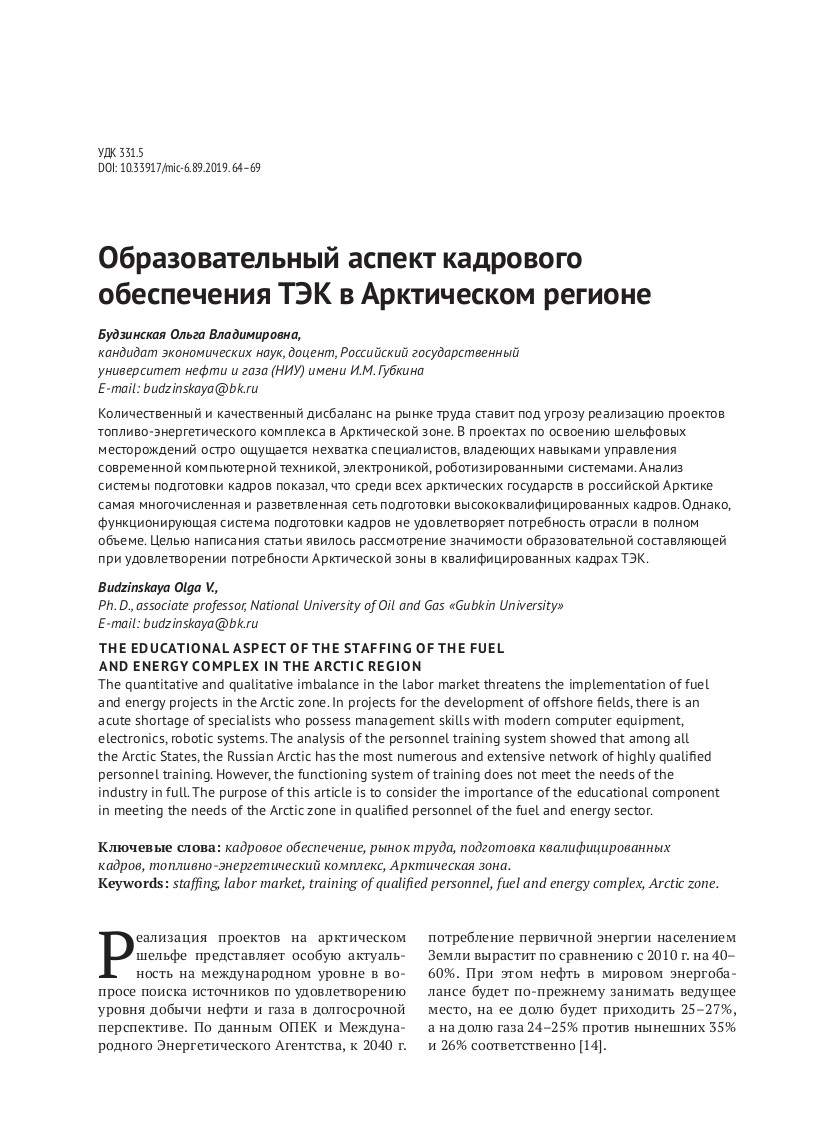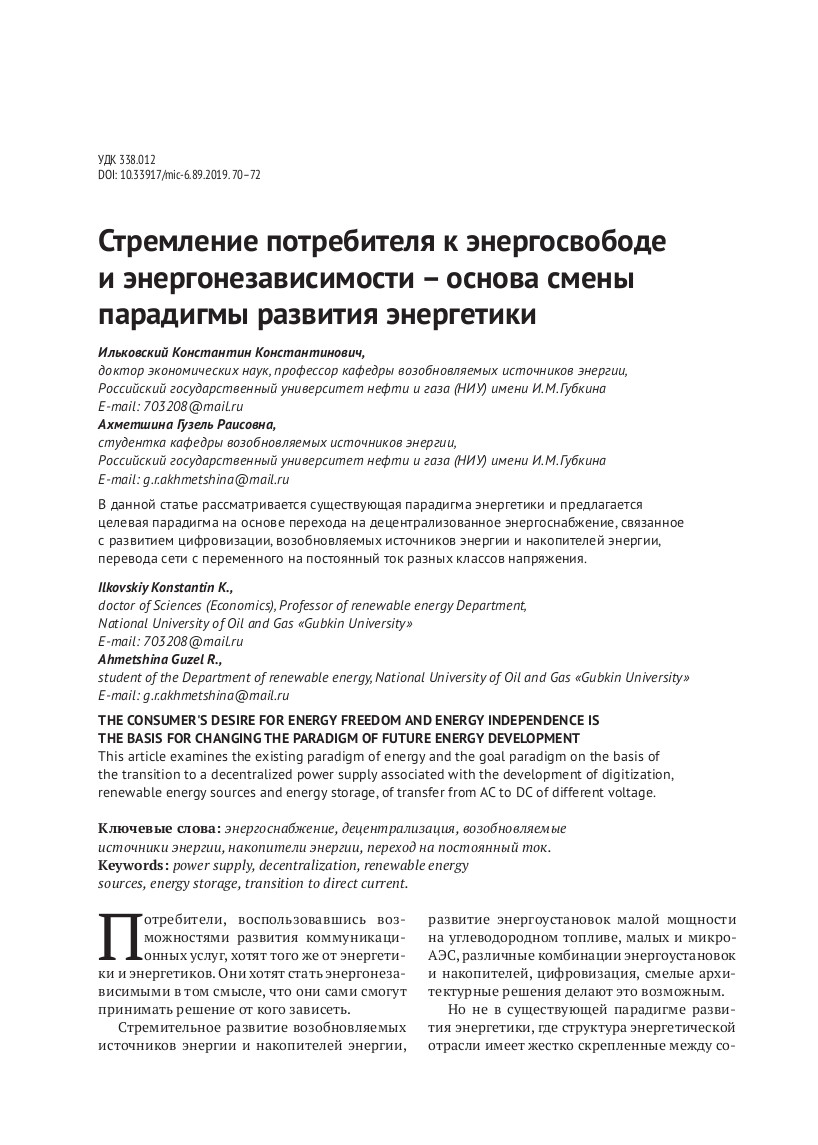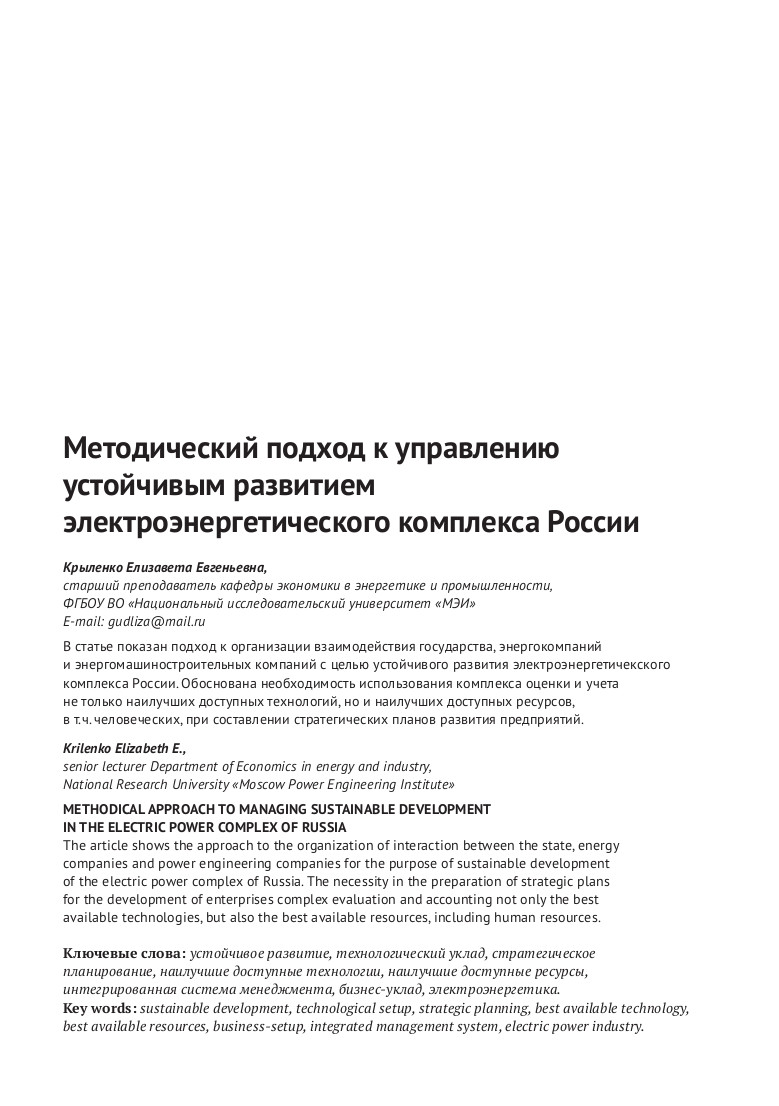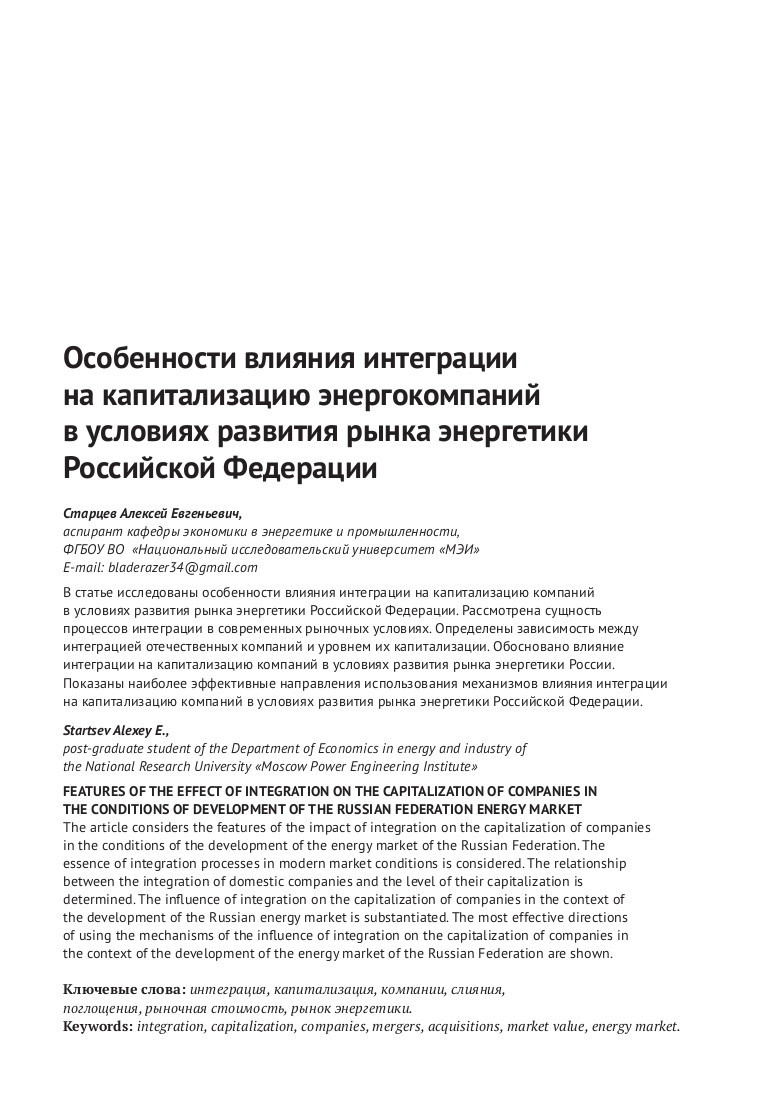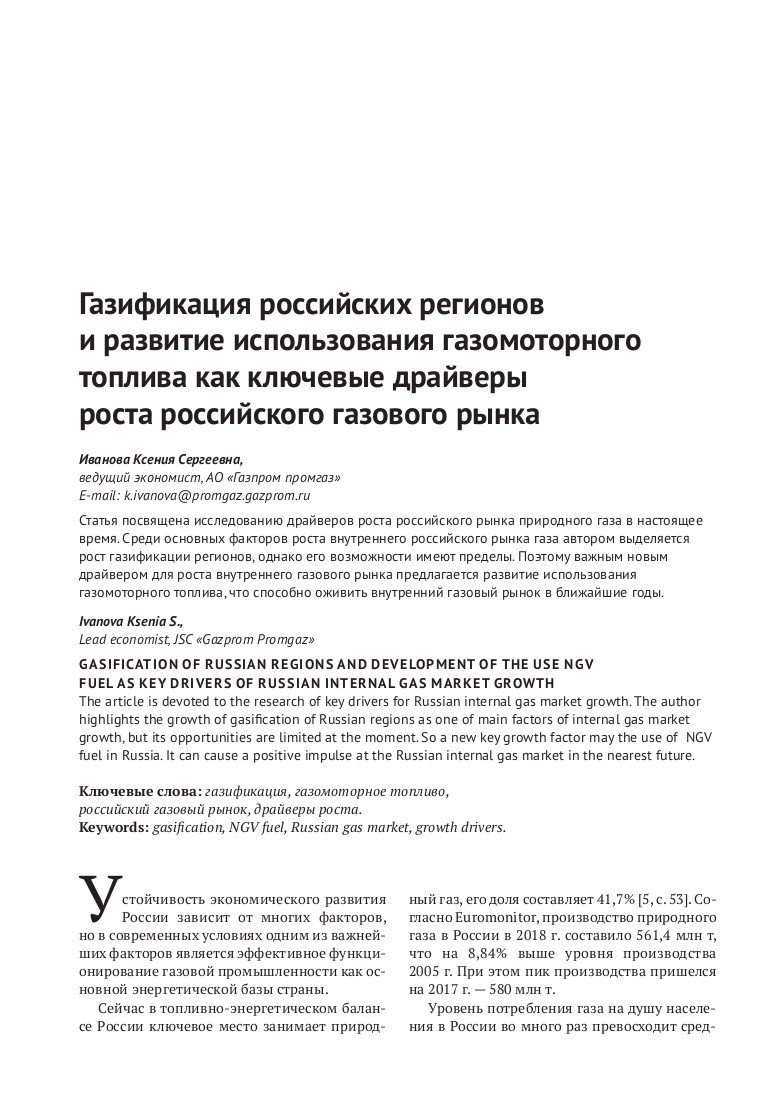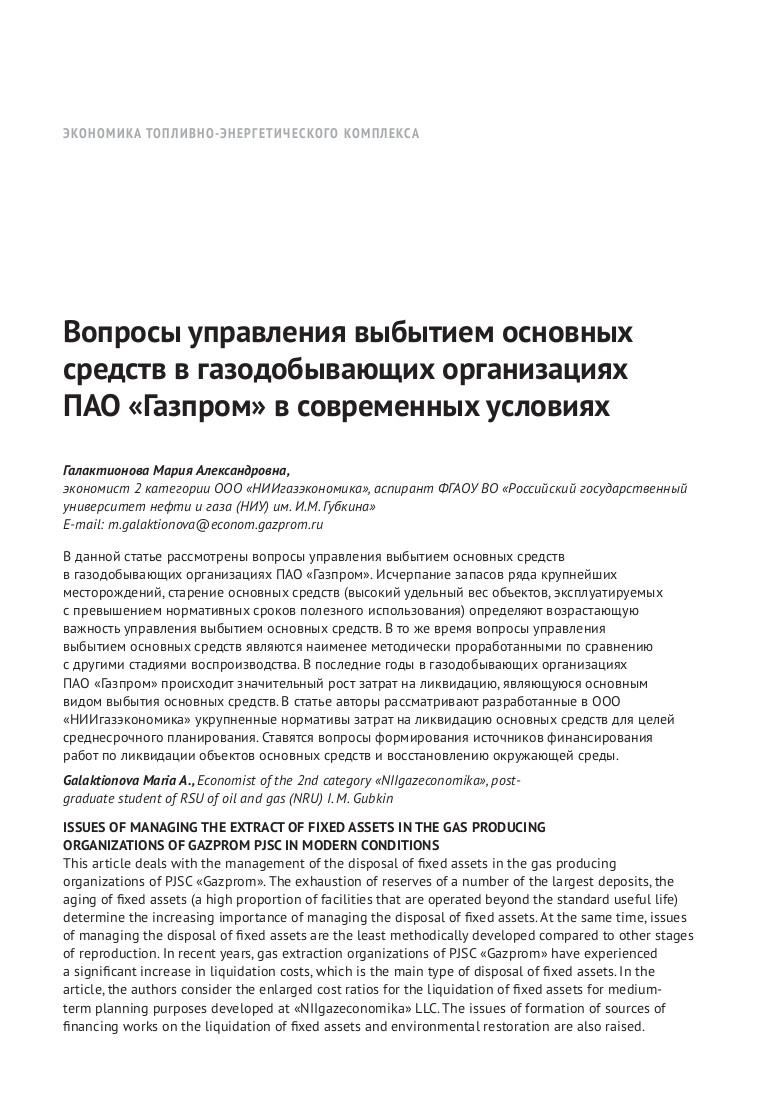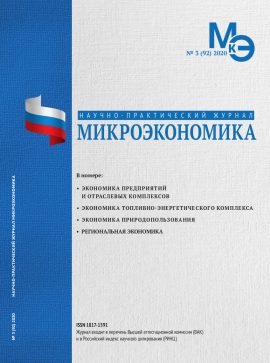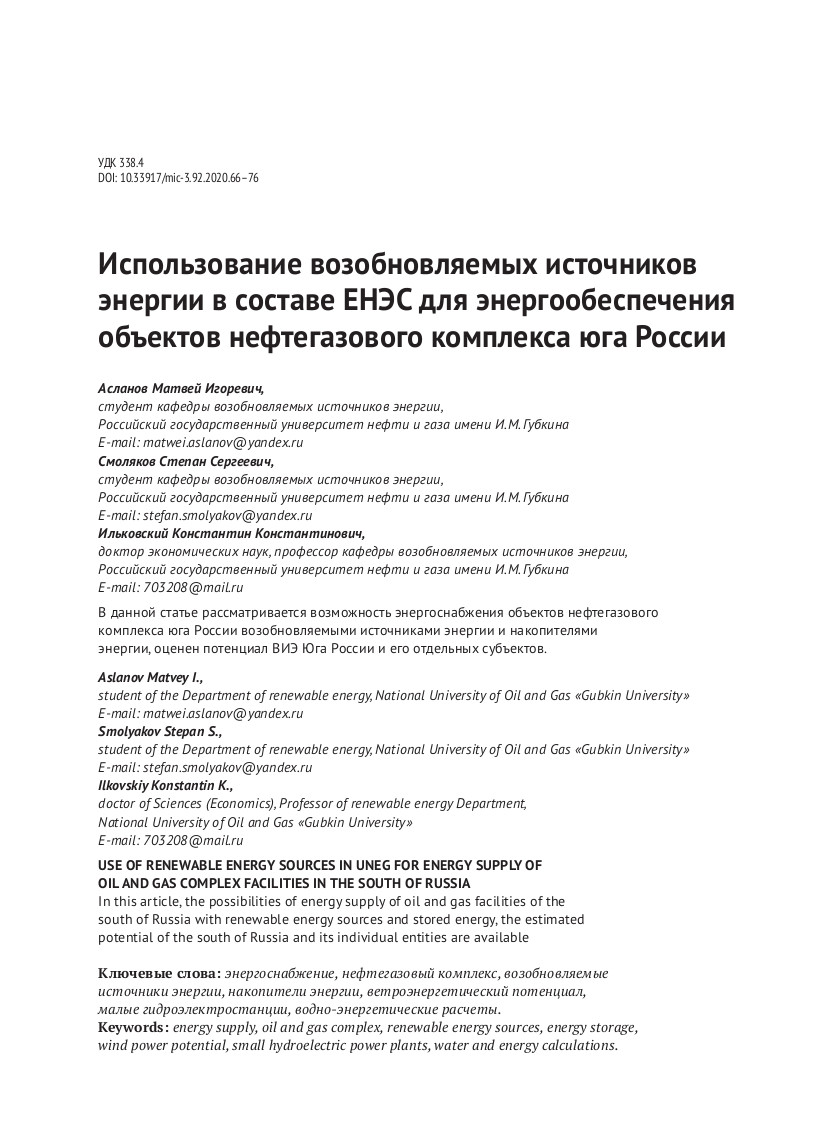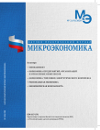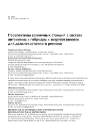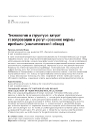The educational aspect of the staffing of the fuel and energy complex in the Arctic region
DOI: 10.33917/mic-6.89.2019.64-69
The quantitative and qualitative imbalance in the labor market threatens the implementation of fuel and energy projects in the Arctic zone. In projects for the development of offshore fields, there is an acute shortage of specialists who possess management skills with modern computer equipment, electronics, robotic systems. The analysis of the personnel training system showed that among all the Arctic States, the Russian Arctic has the most numerous and extensive network of highly qualified personnel training. However, the functioning system of training does not meet the needs of the industry in full. The purpose of this article is to consider the importance of the educational component in meeting the needs of the Arctic zone in qualified personnel of the fuel and energy sector.


